From buzzy world premieres to awards hopefuls making a stop on the way to Oscar gold, the Toronto International Film Festival is one of the biggest film events of the fall. We at FandomWire attended this year’s TIFF, where we saw 43 feature films. While narrowing this crop down to our ten favorites was a difficult task, we eventually narrowed it down to a batch of films we won’t soon forget.
After we share our top 10 films of TIFF with you, we will also share our thoughts on some of the other films we saw at the festival, so be sure to keep reading!
FandomWire’s Top 10 Films of the 2024 Toronto International Film Festival
10. The Room Next Door

Spanish filmmaker Pedro Almodóvar has become one of the most beloved auteurs in international cinema with his unique brand of delicious melodramas. His latest film, The Room Next Door, is his first feature in English (following his short Strange Way of Life). Starring Julianne Moore and Tilda Swinton, Almodóvar’s film has a ton of very strong elements, and while they don’t all come together as well as one would hope, his latest work is still engaging and compelling.
Check out our full review of The Room Next Door here.
9. Emilia Pérez
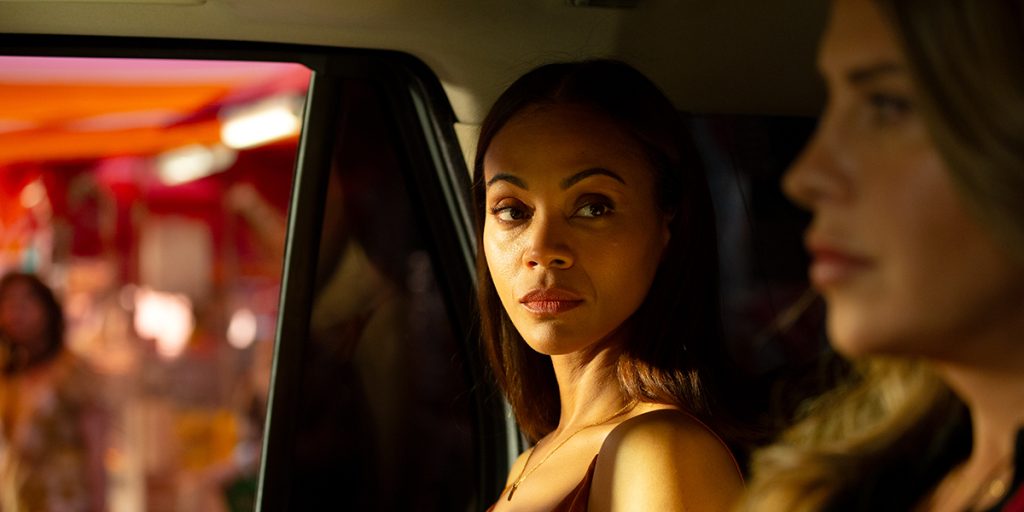
After its debut at Cannes, Jacques Audiard’s Emilia Pérez immediately became one of the most buzzed-about movies of the year thanks to its star-studded cast, unique premise, and visionary approach. Although Emilia Peréz is certainly a lot of movie, Jacques Audiard has made a daring, provocative, and entertaining musical that will challenge and perplex most viewers.
Check out our full review of Emilia Pérez here.
8. It Doesn’t Get Any Better Than This

Festivals of the caliber of TIFF tend to favor films with a prestigious premiere status — World Premieres or at least International or North American Premieres. Thus, it was surprising to see It Doesn’t Get Any Better Than This, a film that has been on the festival circuit since 2023, announced as part of this year’s Midnight Madness lineup. If it’s good enough to be programmed by Midnight Madness maestro Peter Kuplowsky despite having played elsewhere, it must be something special.
Rachel Kempf and Nick Toti’s found-footage horror flick follows two amateur filmmakers who purchase an abandoned duplex to shoot a movie, only to discover that their new abode may harbor a sinister secret. It Doesn’t Get Any Better Than This is an ultra-microbudget indie horror picture in the tradition of The Blair Witch Project and, more recently, Skinamarink. Although it’s not quite as frightening as either of those films and certainly has a more traditional narrative than the latter viral sensation, it’s a wonderful exercise in atmosphere that will shake viewers to their core.
7. I’m Still Here
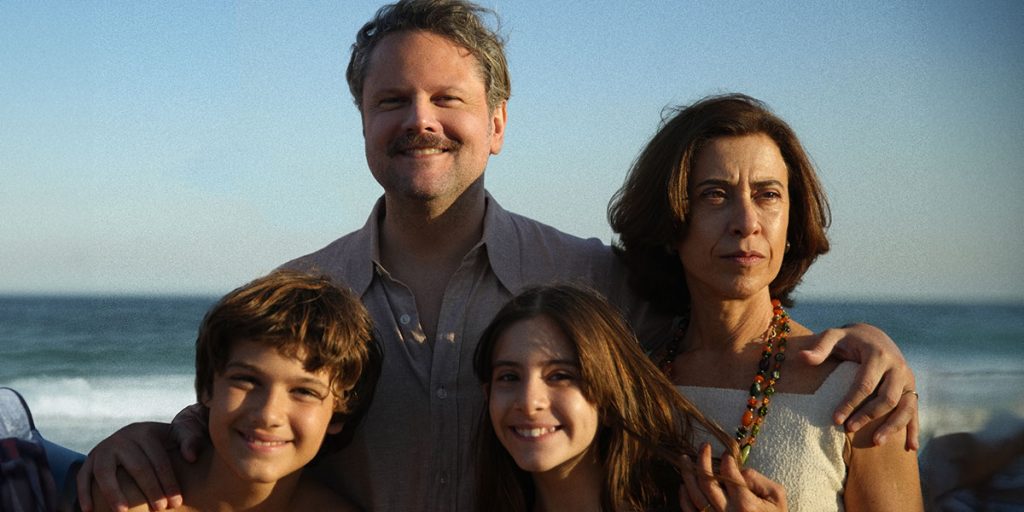
Brazilian filmmaker Walter Salles has made some of the most acclaimed Latin American films of the 21st century — Central Station, The Motorcycle Diaries — and his first feature in over a decade, I’m Still Here, is a beautifully poignant return to form. This political drama follows a family whose happy life is shattered when their patriarch is abducted by the military regime.
Adapted from the memoir by Marcelo Rubens Paiva, I’m Still Here is one of the most heartbreaking films you will see this year. The first half is a disarmingly sweet family drama, only for the second half to kick in and shatter you emotionally. The story benefits from Salles’s tender, subtle hand and tremendous performances from the entire cast. Fernanda Torres, in particular, is wonderfully devastating in her role as the wife and mother left to assemble the pieces of her family in the wake of her husband’s absence.
6. By the Stream

Few filmmakers have as prolific an output as South Korean indie darling Hong Sang-soo, who has been putting out two pictures a year for the past few years. Although his works occasionally blend together with their similar styles and themes, his second 2024 film (after his Berlinale entry A Traveler’s Needs), By the Stream, is arguably one of his best works yet.
By the Stream follows a university lecturer who enlists her once-famous actor/director uncle to direct a skit for their annual theatre festival. Don’t be fooled by the film’s more “traditional” narrative premise compared to the rest of Hong’s work — his latest production has the same laid-back, soju and sharing feelings vibes that have earned him such acclaim among the cinephile crowd. That being said, this one does stand out, thanks to how tender it is with its characters and themes.
5. The Life of Chuck

Acclaimed author Stephen King is known for finding filmmakers he likes to work with and forming fruitful collaborations with them. The Life of Chuck is the latest adaptation of one of King’s stories by Doctor Sleep and Gerald’s Game filmmaker Mike Flanagan. Although it’s different than what one might expect from both Flanagan and King, this is a beautiful, profound, lovely film.
Check out our full review of The Life of Chuck here.
4. Sketch
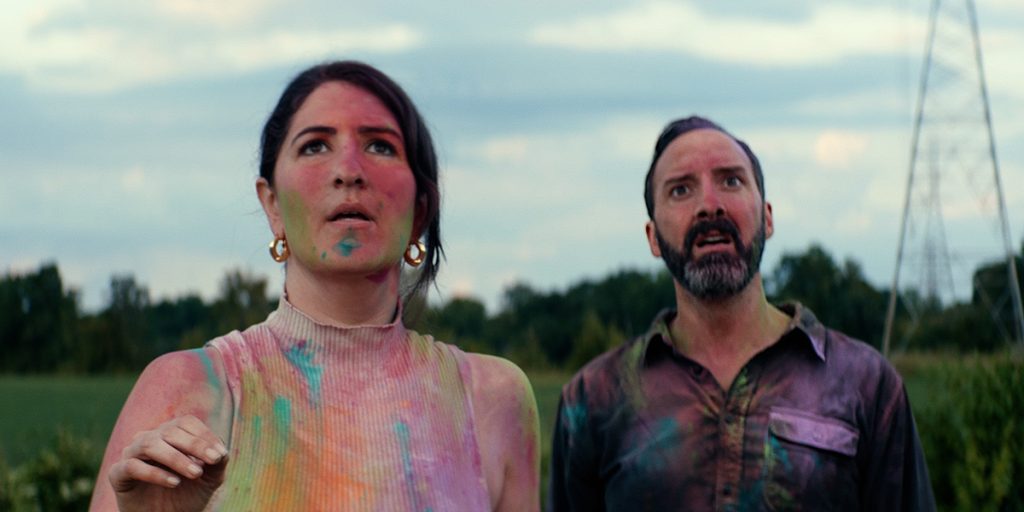
Seth Worley’s family comedy Sketch is the type of festival movie that likely could have fallen under the radar. Although it has two well-liked stars in Tony Hale (Arrested Development) and D’Arcy Carden (The Good Place), they aren’t exactly household names, making it easy for a movie like this to get overshadowed by the buzzy world premieres and Oscar hopefuls bowing at the festival.
That being said, this Goosebumps-esque kiddie horror-comedy was one of the most unexpectedly delightful films we saw at this year’s festival. It follows a single dad whose daughter’s propensity for creating disturbing art has unexpected consequences when her drawings come to life. It’s funny, touching, and action-packed, all tied up in a nice 90-minute package. And to boot, it has some of the best CGI you will see in an independent production like this.
3. The Shadow Strays
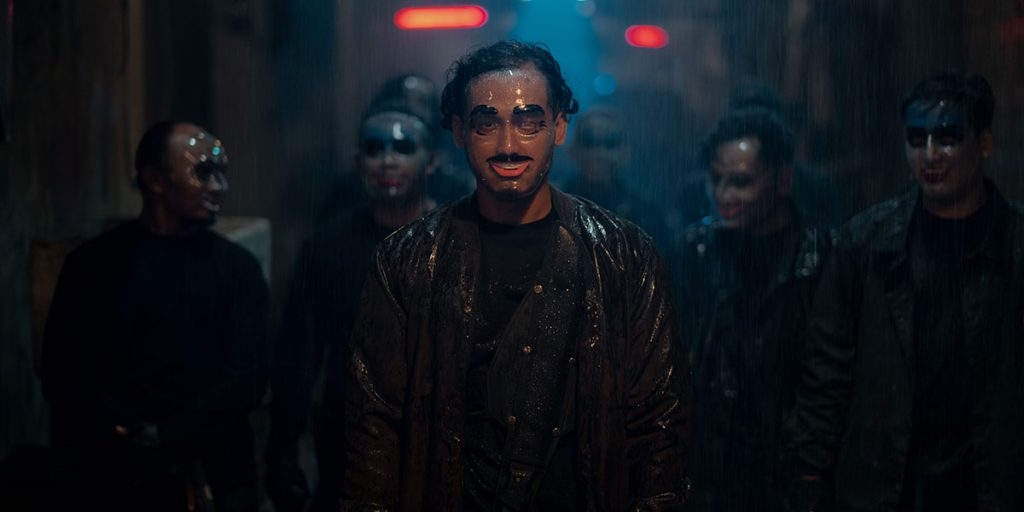
Indonesian action filmmaker Timo Tjahjanto (The Night Comes for Us) is a mainstay in TIFF’s Midnight Madness section, and his latest picture, The Shadow Strays, was selected for the Closing Night slot. Tjahjanto’s blood-soaked action epic follows a member of an elite force of female assassins who sets out on a rescue mission to save an orphaned boy who is kidnapped by the bad guys.
This may sound like an incredibly conventional set-up for an action movie, and that’s because it is. However, what Tjahjanto’s film lacks in narrative originality, it more than makes up for in world-building and visual style. The action choreography in this film is incredibly brutal and exhilarating, rivaling the quality of such beloved films as the John Wick franchise. This should not surprise Tjahjanto’s fans, but this movie kicks incredible levels of a**.
2. Conclave
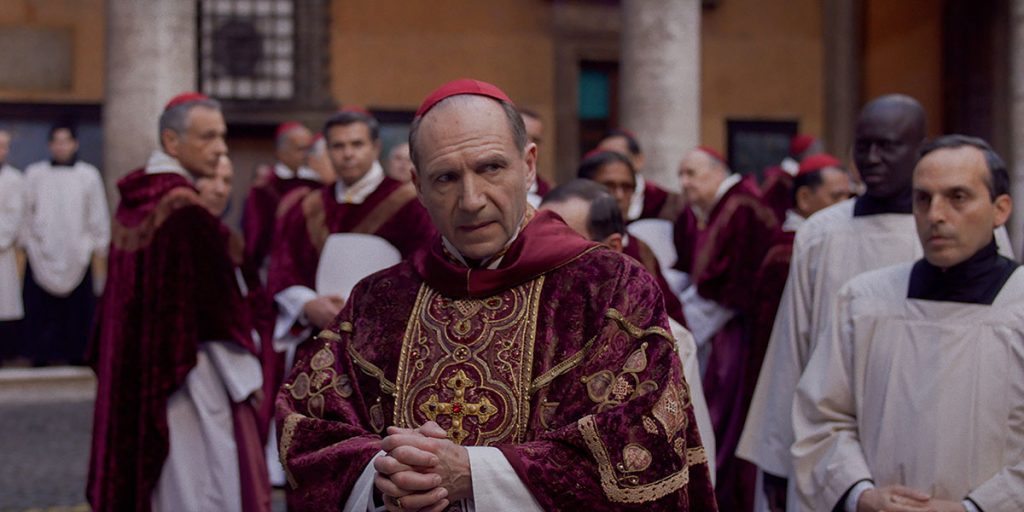
Edward Berger’s remake of All Quiet on the Western Front snuck up on the Oscar race to become an above-the-line contender, but the same won’t be true with his newest movie, Conclave. This Vatican-set thriller immediately stands out as one of the year’s finest films thanks to a pitch-perfect ensemble, a sharp script, and excellent execution.
Check out our full review of Conclave here.
1. Queer
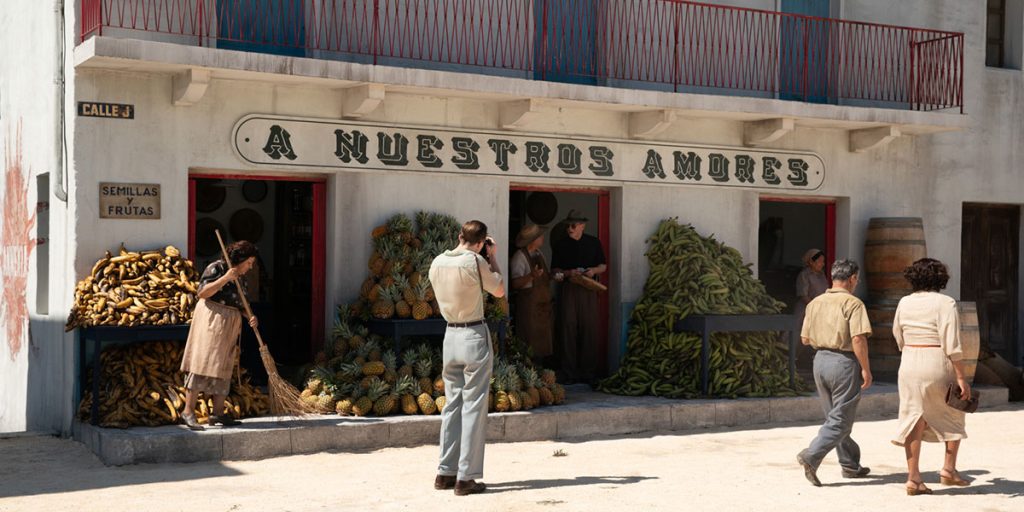
After their critically acclaimed and audience-favorite romance Challengers earlier this year, writer Justin Kuritzkes and director Luca Guadagnino have re-teamed for Queer, and it couldn’t be more different. Surreal, funny, and most of all sexy, Queer challenges the audience in ways that will almost certainly ensure it is divisive, but are incredibly ambitious swings nonetheless.
Check out our full review of Queer here.
More Films from the 2024 Toronto International Film Festival
Beyond the top 10 films we saw at the 2024 Toronto International Film Festival, here are our thoughts on some of the other films we saw as part of this year’s fest.
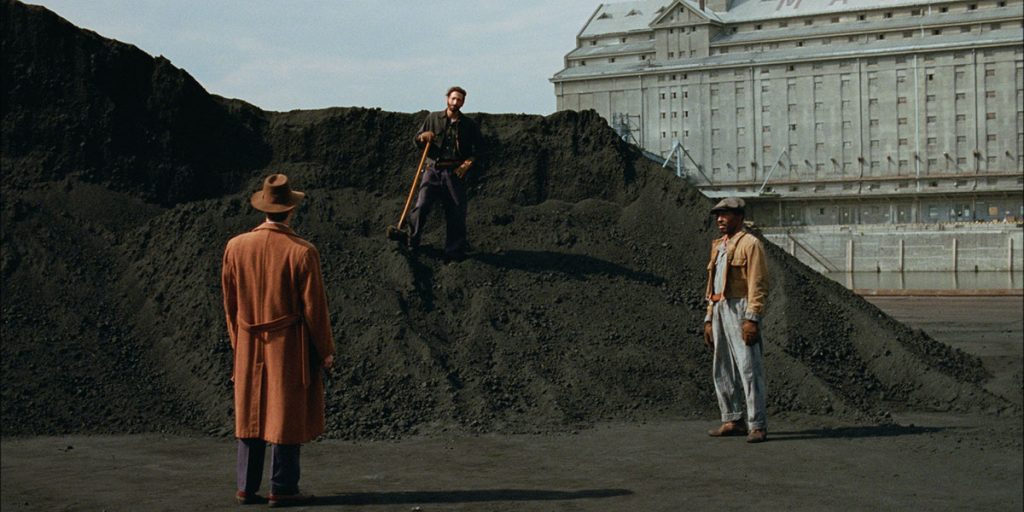
The Brutalist
Brady Corbet’s three-and-a-half-hour epic The Brutalist immediately shook up the Oscar race when it premiered at the Venice Film Festival as one of the year’s best-reviewed films. Several elements of the film are incredible, from the stunning VistaVision cinematography to Daniel Blumberg’s sweeping score and a trio of career-best performances by Adrien Brody, Guy Pearce, and Felicity Jones. However — to put it in architectural terms — this character study is missing its keystone. It feels like it is constantly building with no end in sight, and by the time it reveals its ambitious message, it is too little too late.
Can I Get a Witness?
Viewers of Ann Marie Fleming’s latest feature, Can I Get a Witness?, would likely be unsurprised to learn that her background is primarily in animation and visual art. This live-action/animation hybrid has the imagination and world-building of someone with a background in those fields. Unfortunately, it does not have the storytelling to back it up. While its premise is compelling — a near future in which people are forced to commit suicide at the age of 50 to end issues like climate change and overpopulation — its dialogue and situations are too expositional (and sometimes even unintentionally laughable) to take its well-meaning message seriously.
Hard Truths
The latest film by British auteur Mike Leigh (Secrets and Lies) is also probably his funniest yet. Hard Truths follows a working-class mother living in Britain who spends her days complaining about what she sees wrong with the world. The main reason to see this film is Marianne Jean-Baptiste, whose performance in the lead role is equal parts hilarious and crushing. Although this isn’t the hard-hitting social realist filmmaking that gave Leigh an international spotlight, nor the refined period work he’s been doing in recent years, its uneasily funny first half gives way to a poignant back half that makes quite an emotional impact.
K-POPS!
Musician Anderson .Paak (half of Silksonic with Bruno Mars) leans into his multicultural background for his directorial debut, K-POPS! — a charming, if conventional family comedy. The film stars Paak as a failed musician who gets the opportunity of a lifetime to travel to Korea and be the house drummer for a popular singing competition, only to discover that one of the competitors is his long-lost son. Although the film follows the familiar beats of the genre and is certainly just an excuse for Paak to make a film with his real-life son (who plays his son in the movie), K-POPS! is often funny and always lovely, making for a delightful watch.
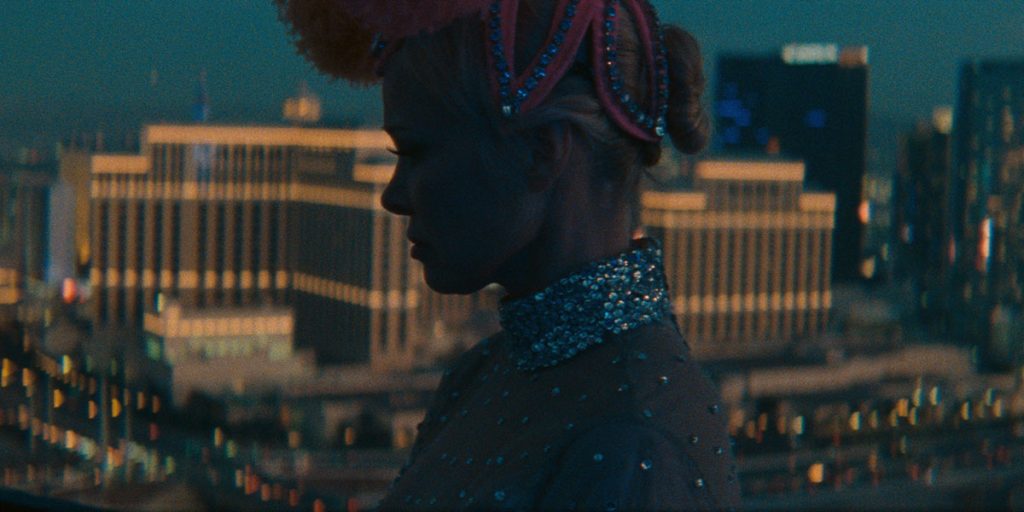
The Last Showgirl
Gia Coppola’s The Last Showgirl is an effective showcase for Pamela Anderson, if only because her role feels so close to home. In the film, Anderson stars as an aging Vegas showgirl whose future is put at risk when her show is set to close after a 30-year run. Anderson is charming and vulnerable here, but the story follows such conventional beats that it is hard to enjoy. Add in terribly underwritten supporting characters squandering a stellar cast that includes Jamie Lee Curtis, Dave Bautista, Kiernan Shipka, and more, and you have a film that feels like a frustrating waste of potential.
The Mountain
Actress Rachel House is best known for her regular supporting roles in Taika Waititi’s films, so it’s unsurprising that her directorial debut, The Mountain, feels like it’s cut from a similar cloth as the New Zealander filmmaker’s early work. The family comedy follows three kids who go on an adventure to the Taranaki Maunga mountain. Although it’s a very straightforward film that follows a tried-and-true formula, what makes The Mountain stand out is its Māori representation and cultural specificity as a coming-of-age story. As a result, it’s very charming, even if it is familiar.
Mr. K
Tallulah Hazekamp Schwab’s Mr. K is an incredibly Kafka-esque fantasy, so much so that the name seems to be an homage to the surrealist author. In the film, Crispin Glover stars as a magician whose stay at a remote hotel becomes a nightmare when he discovers it is an inescapable labyrinth. It’s like a quirkier version of The Shining, but it doesn’t explore any particularly provocative or meaningful themes. Still, Glover’s performance is a ton of fun to watch, and the cinematography and production design are excellent, so it’s easy to get lost in Schwab’s bizarre vision.
On Becoming a Guinea Fowl
Rungano Nyoni’s debut, I Am Not a Witch, heralded her as an exciting voice to watch. While her sophomore feature is not as effective or compelling, it still shows how incredibly distinctive her voice is. The film follows a woman as she goes through the funeral rituals of her Zambian family, only for long-buried secrets to come to light throughout their mourning. Although the authenticity with which Nyoni portrays her culture is fascinating, the conflict in the film is not particularly compelling. It feels strangely cold for a movie about grief, but there are moments here that are very engaging.
Paying for It
The story behind the making of Paying for It is almost more interesting than the movie itself. The film is adapted from the autobiographical novel by Chester Brown about his relationship with Sook-Yin Lee… who directed this movie. The result is a look at relationships that feels incredibly authentic, with several laughs throughout. However, it’s not shot in a particularly cinematic way, and while that seems to be a purposeful aesthetic choice, it causes the film to feel somewhat cold and undermines its vulnerability.
Pedro Páramo
The directorial debut of Oscar-nominated cinematographer Rodrigo Prieto (Killers of the Flower Moon, Barbie), Pedro Páramo, is a visual delight — as if that is any surprise. However, this adaptation of Juan Rulfo’s iconic novel is meandering and dense, making it feel long, slow, and tedious. Being nice to look at can only take a film so far, especially when most audiences won’t get to see it on the big screen, as is the case with Pedro Páramo since it is distributed by Netflix.
Pepe
On paper, Nelson Carlo de Los Santos Arias’s Pepe sounds like it will be a lot like the recent critical darling EO. The film is an incredibly experimental work about a hippo that belonged to Colombian drug lord Pablo Escobar. The story is told primarily through narration that claims to be the voice of the hippo’s ghost, although the narration is so dry and monotonous that it will almost lull viewers to sleep. Although the film has some incredible visuals throughout, de Los Santos doesn’t explore his themes in a way that feels coherent enough to leave much of an impact.
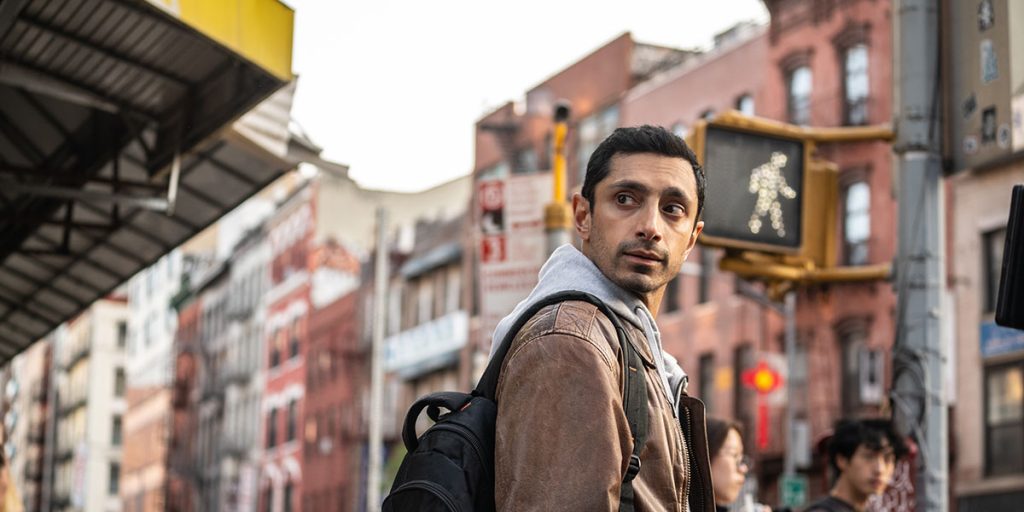
Relay
David Mackenzie’s latest film is a high-concept thriller starring Riz Ahmed as a middleman who negotiates between whistleblowers and the corrupt corporations they seek to expose. Although this concept seems like it would be ripe with edge-of-your-seat tension, the film’s gimmick gets in its way. The film’s title comes from the device the protagonist uses to communicate — an accessibility tool typically used by the deaf or hard of hearing. Because of this, much of the film is spent watching one person talk on the phone and the other type, which is just about as disengaging as it sounds.
The Seed of the Sacred Fig
Mohammad Rasoulof’s The Seed of the Sacred Fig is unquestionably an important film simply for its existence. Rasoulouf has been banned from filmmaking by his country of Iran, and something that takes such an incendiary stance against the regime as this is certainly brave. However, the film’s first half — which explores the theme of protest — is much more effective than the second half. The story takes a shift into a very different territory, and while it is undeniably well-crafted, it is less compelling and far less urgent than what preceded it.
Seven Days
The Seed of the Sacred Fig’s Mohammad Rasoulof also wrote the film Seven Days, directed by Ali Samadi Ahadi, and it is somehow a more minor work despite even deeper political themes. The film follows an activist who, while on medical leave from prison, must decide between attempting to flee the country and returning to fulfill the rest of her sentence. As with the rest of anti-regime Iranian cinema, one must admire Seven Days for its incredible bravery. However, it feels like this film would have benefitted from deeper urgency.
Shepherds
Sophie Deraspe’s Shepherds isn’t a particularly profound film, but it is charming and life-affirming. Following a salaryman who decides to leave his job with the dream of becoming a shepherd, the film serves as a poignant reminder to take the time to slow down and enjoy the small beauties of life and the natural world. It also helps that Vincent Gonneville crafts some truly gorgeous cinematography. Because of this, Shepherds might be a quaint film, but it’s a lovely watch nevertheless.
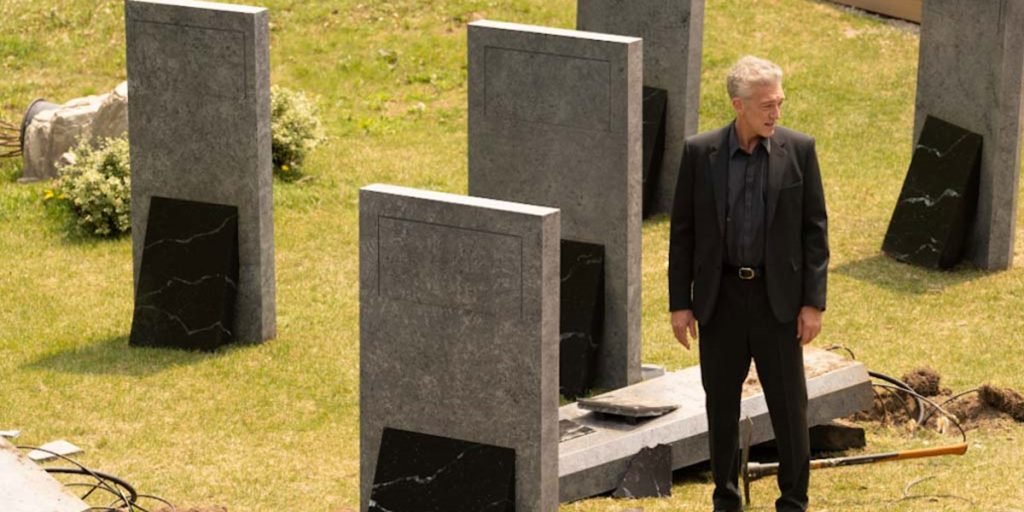
The Shrouds
The latest film by Canadian body horror master David Cronenberg is also probably his most accessible in years. The Shrouds follows a businessman and grieving widower who has built devices that allow people to watch the decomposition of their loved ones within their tombs. Part body horror, part romantic comedy, part neo-noir, and part grief drama, this is a gripping, disturbing, and strangely funny film — balancing its tones and genres in a way that only Cronenberg could. It is also probably Cronenberg’s most vulnerable film yet, as he is clearly using this story to explore his own emotions as a widower.
They Will Be Dust
Carlos Marques-Marcet’s They Will Be Dust is an ambitiously weird film. It follows a woman who receives a terminal cancer diagnosis, causing her to consider the radical step of assisted suicide. However, this is not the straightforward cancer drama you think it is. It’s a sardonically funny film with some lively musical sequences for good measure. While this is an incredibly bizarre approach, it does lend the film a strange and unique resonance.
Viet and Nam
Minh Quy Truong’s Viet and Nam is one of the most striking works of image-making and atmosphere of the year. However, this story of two young coal miners — star-crossed lovers who will soon be pulled apart — is a bit too meandering for its own good. Son Doan’s exquisite cinematography is the MVP here, creating mesmeric visuals that are almost so gorgeous that it’s easy to get lost in the frame and stop paying attention to what is happening in the story.
Youth (Hard Times)
Wang Bing’s Youth (Hard Times) is the second film in his trilogy of documentaries about textile factory workers in China. While the first film, Youth (Spring), raised some ethical questions about Wang’s approach as a documentarian, this follow-up is much more powerful and effective. It focuses far more on the workers and their lives outside the factories, exploring their struggles to get by in the face of unfair and exploitative labor practices. It’s still over three hours long, so it won’t be for everyone, but it is a much more stirring work of verite filmmaking than its predecessor.
What are you most excited to see from this year’s Toronto International Film Festival? Be sure to let us know in the comments below!
The 2024 Toronto International Film Festival ran September 5-14.

